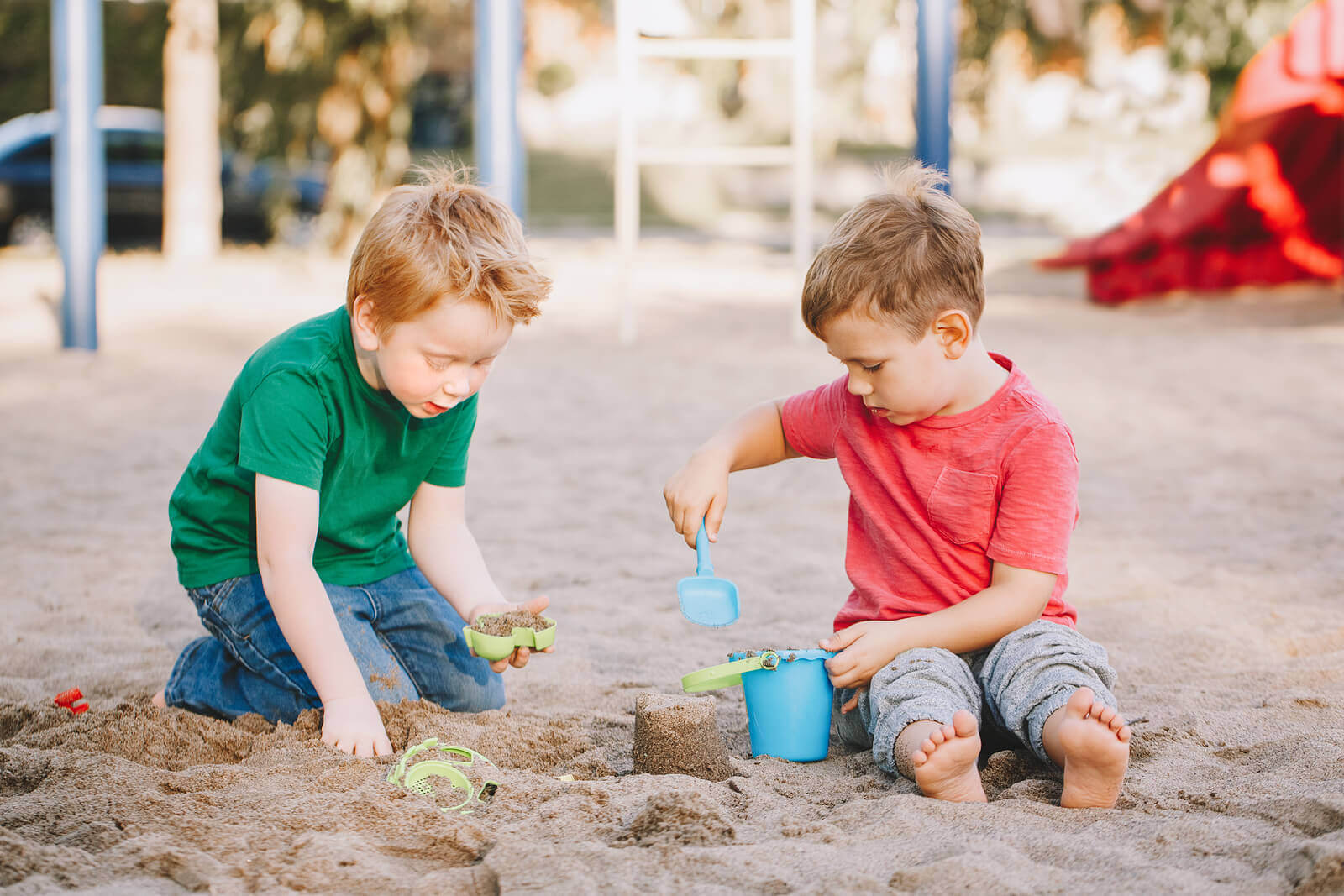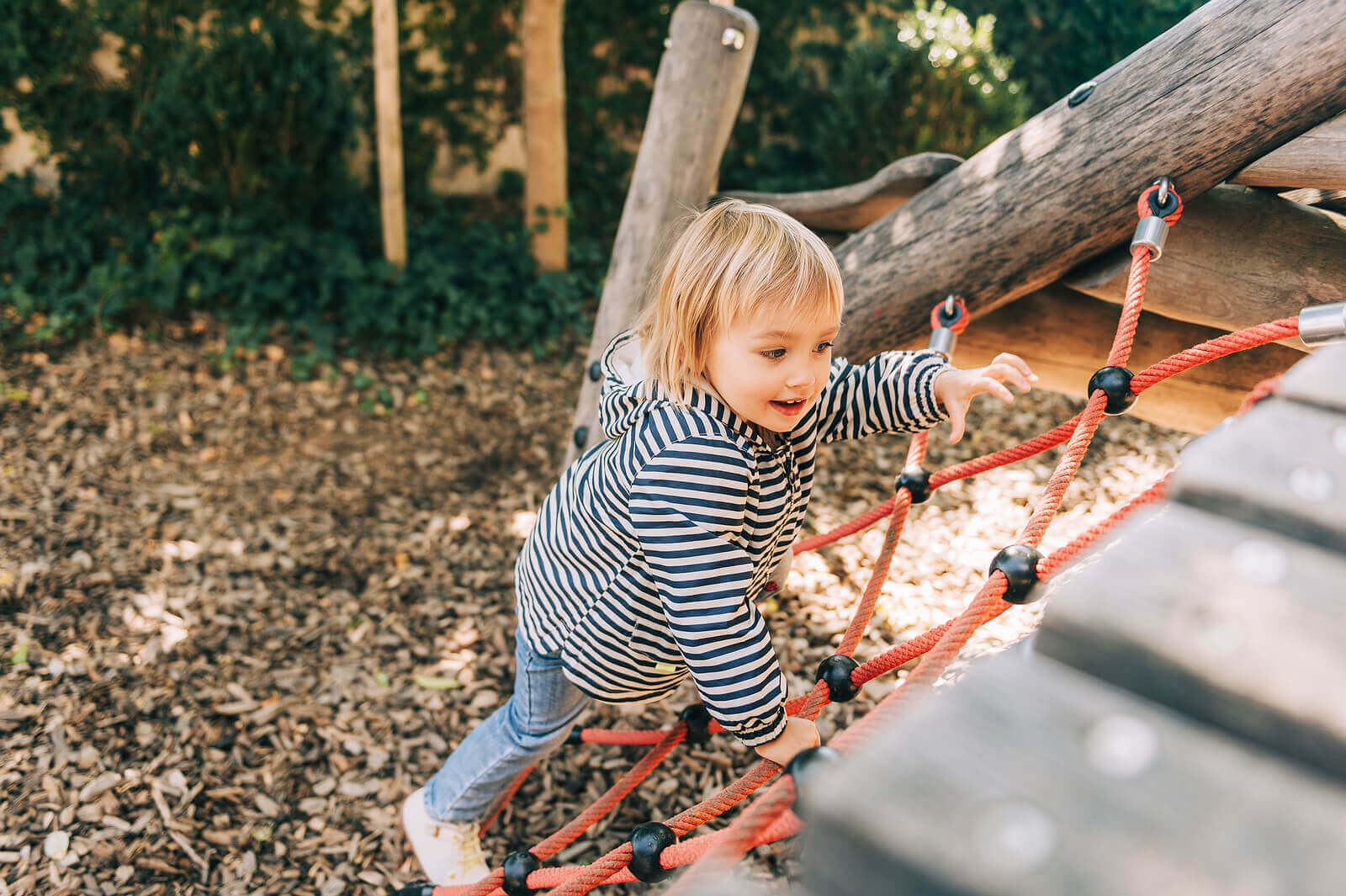Parent's Guide to Gross Motor Development

The process that children follow in learning to lift their heads when they’re babies and to run as youngsters to play sports is known as gross motor development. Gross motor skills are an important part of children’s overall physical development.
That’s why it’s essential that parents understand what gross motor skills are and why they’re so fundamental. As a result, they’ll be able to help their children develop correctly through activities and movement.
Gross motor development
Children develop gross motor skills when they learn how their bodies work and how they can move and control them. Children need to develop gross motor skills during infancy and through the early elementary years.

During early childhood, it’s important for young children to develop skills such as muscle strength, balance, core strength, postural control, endurance and coordination. Children grow naturally from the center of the body outward. This means they need to increase strength in their core and trunk before developing strength in their arms and legs.
Therefore, fine motor skills, such as finger strength and control, depend on gross motor development occurring first.
In this sense, the latter can take place in various ways during childhood, mainly through free play. Thus, planning movement activities to do with your children allows you to work on specific skills with them, such as balance or catch and release.
Why are gross motor skills important?
Next, if children don’t have well-developed gross motor skills, certain limitations may arise:
- Poor concentration in class.
- Poor body awareness and control.
- Difficulty writing.
- Difficulty sitting at a desk.
- Poor posture, balance and coordination.
- Avoidance of sports and physical activities.
Over the years, there’s been a tendency to replace children’s free play time with all sorts of additional activities. Of course, you may want to send your child to swimming lessons or the occasional extra activity. But, there’s no reason for your 4-year-old to attend art classes, multi-dance classes, soccer class, etc.
These activities are replacing children’s playtime, which is vital for their gross motor development. As far as screen time goes, although it’s currently impossible to completely avoid exposure to screens, as a parent you can control how much time they spend with new technologies.
Your 3-year-old doesn’t need to be using their tablet all afternoon. They’re supposed to be running around outside or getting into mischief somewhere. They should be learning.
No matter how incredible the online program your child follows is, it’s not a justifiable replacement for play. Simply put, the more your kids play freely, the more they’ll learn.
Activities and skills
There are two main ways to develop your child’s gross motor skills:
- Adult-led activities.
- Free play.
When children play freely, they develop many gross motor skills, such as:
- Running, walking, galloping, chasing.
- Crawling, lifting, reaching.
- Jumping.
- Catching, pulling, pushing.
- Hitting, bouncing, passing, rolling.
- Climbing, hanging, holding.
- Balance and coordination.

In addition, adult-led activities are an excellent way to teach motor skills. This means playing with your child. That’s why extra activities, such as dance classes, are also part of adult-led activities and can be valuable when done in moderation and when they don’t replace too much free playtime.
Provide opportunities for development
As a parent, you should be able to offer endless opportunities to develop these skills at home. Find a balance between doing these activities and playing with your children, as well as letting them play independently.
So, when you choose an activity to do with your child, choose a particular skill to work on. Then look at these examples: Body awareness, hand-eye coordination, balance, agility, strength…
In any case, it’s important that you’re aware of the importance of your child’s gross motor development. That way, you’ll be able to offer them activities that will help enhance this aspect of their development.
In this sense, if at any time you realize that your child is having some kind of difficulty in their gross motor development, then it’s important you go to your pediatrician to discuss your doubts and concerns. He or she can help you find a solution to the developmental difficulties your child may have at some point.
The process that children follow in learning to lift their heads when they’re babies and to run as youngsters to play sports is known as gross motor development. Gross motor skills are an important part of children’s overall physical development.
That’s why it’s essential that parents understand what gross motor skills are and why they’re so fundamental. As a result, they’ll be able to help their children develop correctly through activities and movement.
Gross motor development
Children develop gross motor skills when they learn how their bodies work and how they can move and control them. Children need to develop gross motor skills during infancy and through the early elementary years.

During early childhood, it’s important for young children to develop skills such as muscle strength, balance, core strength, postural control, endurance and coordination. Children grow naturally from the center of the body outward. This means they need to increase strength in their core and trunk before developing strength in their arms and legs.
Therefore, fine motor skills, such as finger strength and control, depend on gross motor development occurring first.
In this sense, the latter can take place in various ways during childhood, mainly through free play. Thus, planning movement activities to do with your children allows you to work on specific skills with them, such as balance or catch and release.
Why are gross motor skills important?
Next, if children don’t have well-developed gross motor skills, certain limitations may arise:
- Poor concentration in class.
- Poor body awareness and control.
- Difficulty writing.
- Difficulty sitting at a desk.
- Poor posture, balance and coordination.
- Avoidance of sports and physical activities.
Over the years, there’s been a tendency to replace children’s free play time with all sorts of additional activities. Of course, you may want to send your child to swimming lessons or the occasional extra activity. But, there’s no reason for your 4-year-old to attend art classes, multi-dance classes, soccer class, etc.
These activities are replacing children’s playtime, which is vital for their gross motor development. As far as screen time goes, although it’s currently impossible to completely avoid exposure to screens, as a parent you can control how much time they spend with new technologies.
Your 3-year-old doesn’t need to be using their tablet all afternoon. They’re supposed to be running around outside or getting into mischief somewhere. They should be learning.
No matter how incredible the online program your child follows is, it’s not a justifiable replacement for play. Simply put, the more your kids play freely, the more they’ll learn.
Activities and skills
There are two main ways to develop your child’s gross motor skills:
- Adult-led activities.
- Free play.
When children play freely, they develop many gross motor skills, such as:
- Running, walking, galloping, chasing.
- Crawling, lifting, reaching.
- Jumping.
- Catching, pulling, pushing.
- Hitting, bouncing, passing, rolling.
- Climbing, hanging, holding.
- Balance and coordination.

In addition, adult-led activities are an excellent way to teach motor skills. This means playing with your child. That’s why extra activities, such as dance classes, are also part of adult-led activities and can be valuable when done in moderation and when they don’t replace too much free playtime.
Provide opportunities for development
As a parent, you should be able to offer endless opportunities to develop these skills at home. Find a balance between doing these activities and playing with your children, as well as letting them play independently.
So, when you choose an activity to do with your child, choose a particular skill to work on. Then look at these examples: Body awareness, hand-eye coordination, balance, agility, strength…
In any case, it’s important that you’re aware of the importance of your child’s gross motor development. That way, you’ll be able to offer them activities that will help enhance this aspect of their development.
In this sense, if at any time you realize that your child is having some kind of difficulty in their gross motor development, then it’s important you go to your pediatrician to discuss your doubts and concerns. He or she can help you find a solution to the developmental difficulties your child may have at some point.
All cited sources were thoroughly reviewed by our team to ensure their quality, reliability, currency, and validity. The bibliography of this article was considered reliable and of academic or scientific accuracy.
- Ternera, L. A. C., Acevedo, P. A. J., Ricaurte, K. M. M., & Pacheco, N. E. P. (2011). Características del desarrollo motor en niños de 3 a 7 años de la ciudad de Barranquilla. Psicogente, 14(25), 76-89. https://www.redalyc.org/pdf/4975/497552358008.pdf
This text is provided for informational purposes only and does not replace consultation with a professional. If in doubt, consult your specialist.








